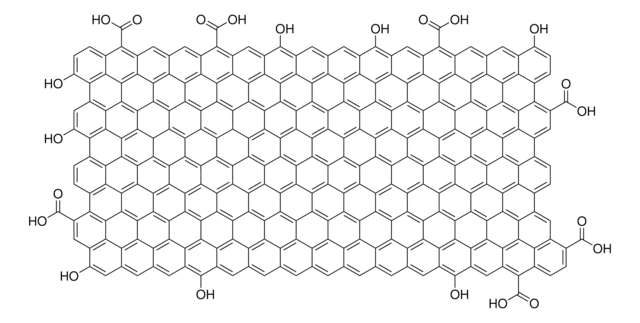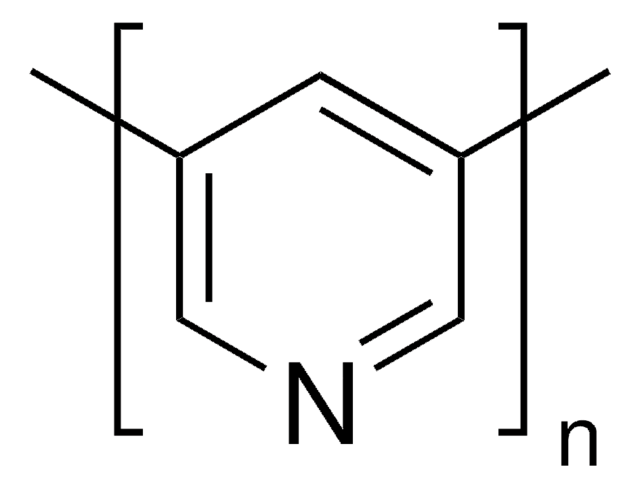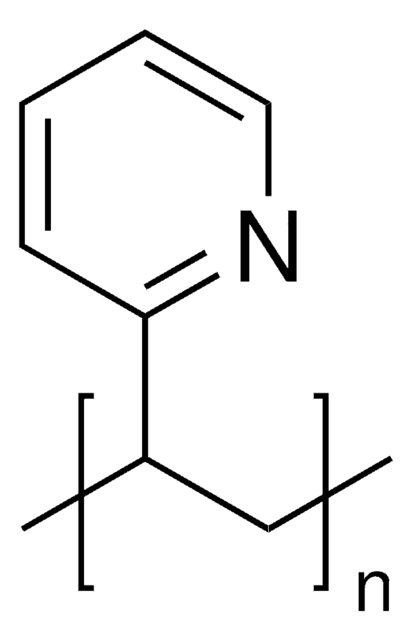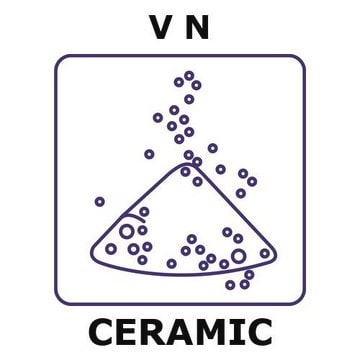595063
Titanium nitride
<3 μm
Synonym(s):
Titanium mononitride
Sign Into View Organizational & Contract Pricing
All Photos(3)
About This Item
Linear Formula:
TiN
CAS Number:
Molecular Weight:
61.87
EC Number:
MDL number:
UNSPSC Code:
12352300
PubChem Substance ID:
NACRES:
NA.23
Recommended Products
form
powder
Quality Level
particle size
<3 μm
mp
2930 °C (lit.)
density
5.24 g/mL at 25 °C (lit.)
SMILES string
N#[Ti]
InChI
1S/N.Ti
InChI key
NRTOMJZYCJJWKI-UHFFFAOYSA-N
Looking for similar products? Visit Product Comparison Guide
Related Categories
Storage Class Code
13 - Non Combustible Solids
WGK
WGK 3
Flash Point(F)
Not applicable
Flash Point(C)
Not applicable
Personal Protective Equipment
dust mask type N95 (US), Eyeshields, Gloves
Choose from one of the most recent versions:
Already Own This Product?
Find documentation for the products that you have recently purchased in the Document Library.
Customers Also Viewed
Duck Hyun Youn et al.
ChemSusChem, 6(2), 261-267 (2013-01-11)
The development of an efficient noble-metal-free counter electrode is crucial for possible applications of quantum-dot-sensitized solar cells (QDSSCs). Herein, we present TiN nanoparticles on a carbon nanotube (CNT)-graphene hybrid support as a noble-metal-free counter electrode for QDSSCs employing a polysulfide
Vamsi Krishna Balla et al.
Journal of the mechanical behavior of biomedical materials, 6, 9-20 (2012-02-04)
The purpose of this first generation investigation is to evaluate fabrication, in vitro cytotoxicity, cell-material interactions and tribological performance of TiN particle reinforced Ti6Al4V composite coatings for potential wear resistant load bearing implant applications. The microstructural analysis of the composites
Aleksandra Dubiel et al.
Materials (Basel, Switzerland), 13(5) (2020-03-04)
In this work, two kinds of silicon nitride-based composites, namely, those with titanium nitride or silicon carbide additives, were sintered using the hot pressing technique (HP). The phase composition, microstructure, and mechanical and elastic properties of the materials were characterized.
Michele C B de Castro et al.
Materials (Basel, Switzerland), 12(3) (2019-02-13)
The Ti-6Al-4V alloy is widely used in the manufacture of components that must have low density and high corrosion resistance and fatigue strength. The fatigue strength can be improved by surface modification. The aim of this study was to determine
D M Gordin et al.
Journal of materials science. Materials in medicine, 23(12), 2953-2966 (2012-08-25)
In this study, the new Hardion+ micro-implanter technology was used to modify surface properties of biomedical pure titanium (CP-Ti) and Ti-6Al-4V ELI alloy by implantation of nitrogen ions. This process is based on the use of an electron cyclotron resonance
Our team of scientists has experience in all areas of research including Life Science, Material Science, Chemical Synthesis, Chromatography, Analytical and many others.
Contact Technical Service










